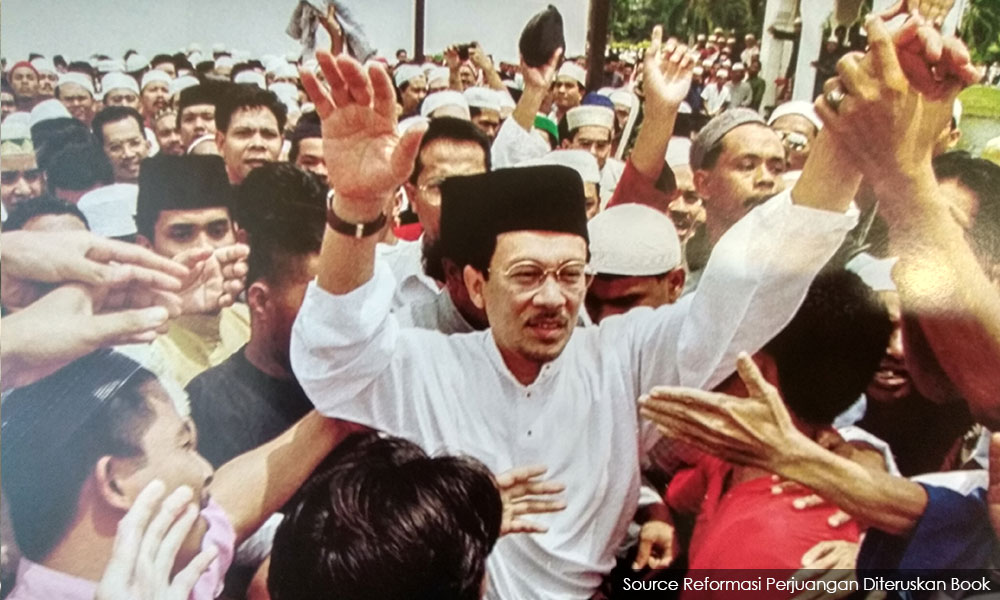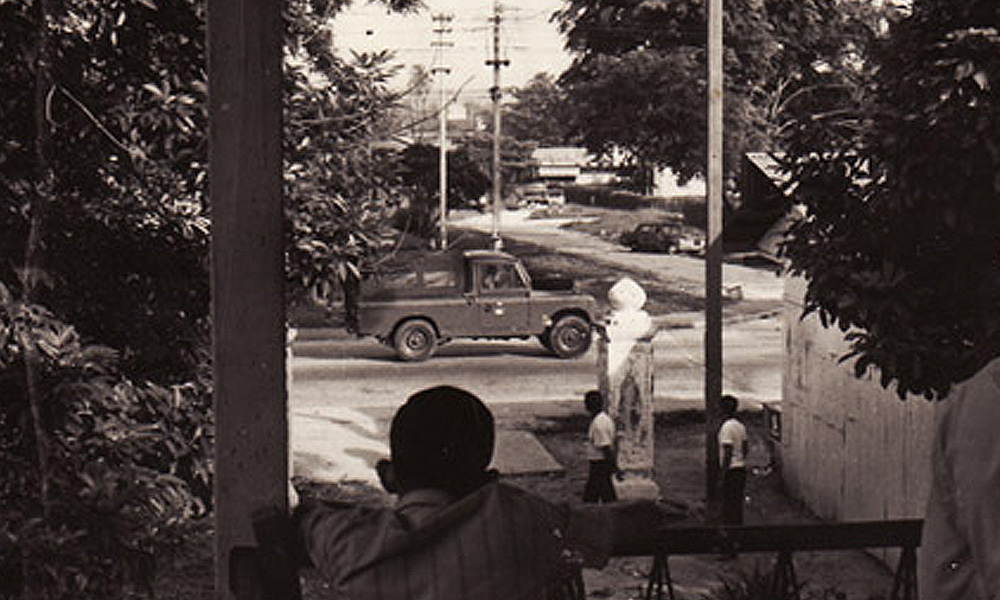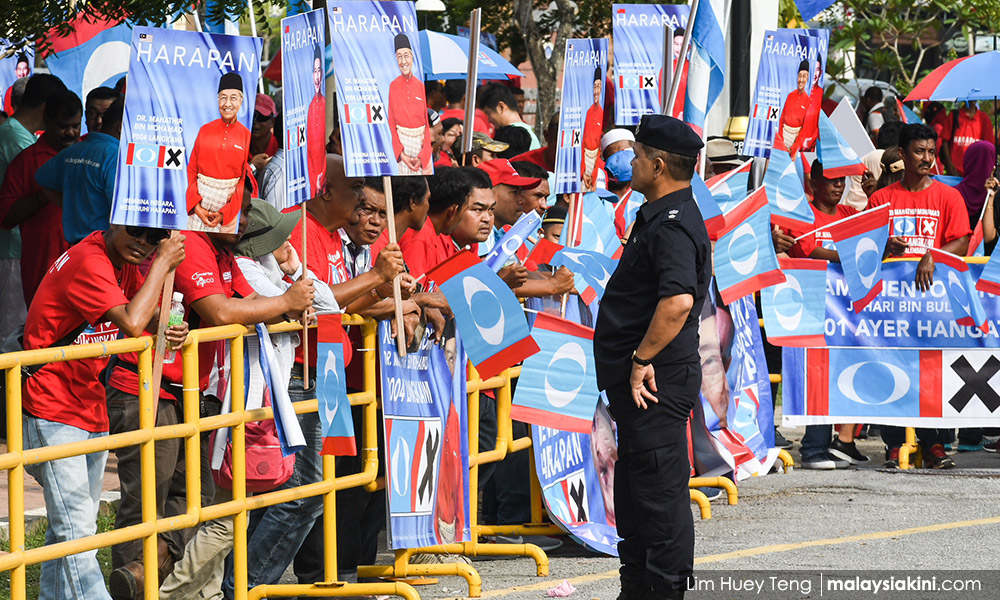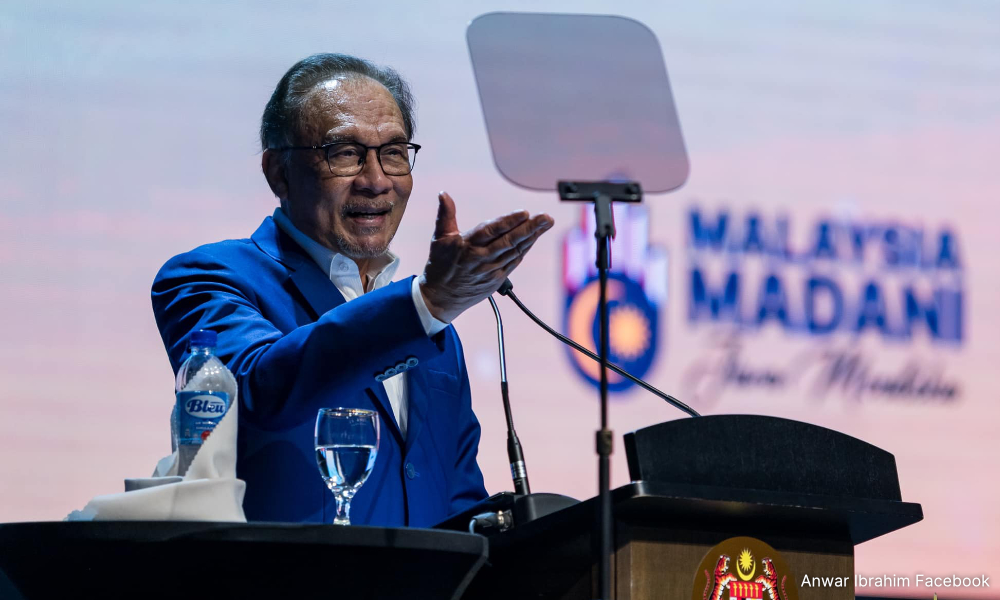Veteran blogger Raja Petra Kamarudin passed away last week at 73. Coincidentally, he passed in September when 26 years ago that same month, Anwar Ibrahim was sacked from Umno and triggered the Reformasi movement.
Raja Petra, of course, played a major role in the movement. Besides running the Free Anwar Campaign and getting arrested under the Internal Security Act, he organised bloggers in the 2000s, contributing to the 2008 political tsunami.
As documented in the book “Power Games: Political Blogging in Malaysian National Elections” by Hah Foong Lian, a band of bloggers held a secret meeting in February 2007 at the National Press Club.
Ranging from hardcore Umno bloggers to pro-Anwar Raja Petra, they were united by one goal: bringing down Abdullah Ahmad Badawi. And they succeeded.
Raja Petra and the (bygone?) era of political bloggers
I think Raja Petra will be chiefly remembered for his blogs. He “poisoned” the minds of many with his acerbic writings in his blogs. One of my earliest political educations was reading Raja Petra’s “Corridors of Power” and “No Holds Barred”, the two blogs hosted in his Malaysia Today portal.

Those older may recall reading “The Khairy Chronicles” which fuelled the myths and legends of “The Fourth Floor”. Add Ajinomoto to political gossip or not, the guy could write.
Raja Petra's blogs were a refreshing departure from mainstream media writings for a teenager and an early adult. I resonate with what the scholar Nicholas Chan wrote, “I came of age politically in the lead up to the watershed 2008 moment thanks to Raja Petra. There were many political bloggers then, such as Jeff Ooi, but the only person I have read religiously was Raja Petra.
“I think what Raja Petra did was to satiate my desire for the long form and investigative journalism. I read the Federal Constitution and the UN Declaration of Human Rights for the first time thanks to him. I followed the paper trail of the 1MDB and (murder victim) Altantuya (Shaariibuu) stuff.
“If ‘Final Fantasy’ was my in-road to the English language, my intimacy with it for political writing is definitely thanks to Raja Petra.”
Alongside Isham Rais, Ooi, and pre-MP Tony Pua, Raja Petra used to blog for a cause - to be exact, a dissident discourse. His style is similar to columnist Joceline Tan, presenting political developments like TVB drama and theatrics unfolding before our eyes.
His blogs were doing similar functions to the English-reading audience like what Harakah and Tukar Tiub did to the Malay crowd.
After his second ISA detention and fleeing to the UK, Raja Petra made several turns - including on some major exposure - and was perceived as a political mercenary, a “gun for hire”. Some of his writings became so toxic that it’s unrecognisable to the dissident he was.
Raja Petra was neither a hero nor the devil. Many who were involved in the Reformasi movement had left or turned. They sacrificed more but also sinned more. It’s not a contradiction.
If we only write and include people who remain “pure” in the movement or struggle, we will be left with an incomplete, sanitised history. More crucially, Raja Petra’s death highlights the importance of foot soldiers who paved the way to democratisation in Malaysia.
What can we do to emphasise these people’s roles more, so that Reformasi is not just about Anwar’s long road to Seri Perdana?
To start with, we ought to move away from not just black-or-white narratives, but away from elite-centric discourse and towards a people’s history of catalytic events in Malaysian history. Two recent experiences demonstrate how this can be done.
Learn from Gwangju and Thammasat
Two recent experiences abroad that I think are worthy of emulating: i) how Thammasat remembers the Oct 6, 1976, massacre despite the state’s non-recognition; ii) how Gwangju’s 1980 democratic uprising was changed from “riot” to “democratic uprising”.
On Oct 6, 1976, Thai soldiers and paramilitary killed hundreds of students and activists after a misinformation campaign smearing the activists as anti-monarchy communists. Decades after this tragedy, the Thai government still does not acknowledge the complicity and the full extent of what happened - not unlike our side here with regard to May 13, 1969.

Despite the state’s non-recognition, Thammasat University’s board approved the enactment of monuments reenacting the killings so that future students and youth will remember the atrocity.
In Gwangju, I learned about the 1980 democratic uprisings. The incident was made globally famous by the movie “A Taxi Driver”, starring Song Kang-Ho (of “Parasite” fame) about a taxi driver and German journalist Jürgen Hinzpeter’s accidental involvement in the uprising.
In May 1980, Gwangju citizens stood up against the South Korean military dictatorship and martial law installed by dictator Chun Doo-hwan. They demanded democracy and basic rights, but soldiers fired at civilian protesters.
These ordinary citizens and activists remarkably organised and pushed back the military, creating an autonomous zone until the soldiers returned and brutally suppressed the uprising. Hundreds of civilians were killed or “disappeared” in the onslaught.
The government branded it as a “riot” influenced by North Korean communists. Citizens campaigned against that official narrative. It was not until 1988 that another wave of democratic uprising happened in South Korea, this time successfully forcing the military regime out.
It took another nine years before the government officially recognised May 18 as a National Day of Commemoration for the massacre and established a national cemetery for the victims.
The rehabilitation of Gwangju protesters from “rioters” to martyrs of democratic resistance did not happen passively. For years, families of deceased activists, activists and friends who survived (and felt survivor’s remorse) and Gwangju citizens campaigned for the counternarrative: a people’s history of the uprising.
Today, the May 18 Foundation commemorates the 1980 Gwangju Uprising by organising memorial events, establishing scholarships, fostering research, publishing materials, dispensing funds, building international solidarity, and awarding the Gwangju Prize for Human Rights (Bersih received the award in 2016).
Rewriting the Reformasi and 2018 histories
Coming back to Malaysia. It’s not just May 13 that we must come to terms with as a nation. But it’s also how we remember (or not) the big events in our democracy such as Reformasi and the 2018 general election.

The government is planning a big gathering at Axiata Arena on Sept 20 to commemorate Anwar’s Reformasi journey, titled “from Reformasi to Madani Government”.
It’s tempting to reduce Reformasi to Anwar and pin the success or failure of Reformasi solely on how Anwar’s story turns out. But Reformasi is far from one man or one party’s ambition.
Reformasi is also about the “Pak Cik” selling VCDs and cassettes featuring the late Fadzil Noor’s ceramah. Reformasi is about the Chinese youths wearing T-shirts with the face of late PAS spiritual leader Nik Aziz Nik Mat on them.
Reformasi is about those Malay activists making friends with non-Malays for the first time through solidarity forged in street demonstrations.
Reformasi is about Raja Petra, Tukar Tiub, and many more bloggers who faced enormous risks of retaliation from the state with each blog post. Reformasi is about nameless and faceless activists who put their careers and livelihoods on the line. Reformasi is about students who risked losing their scholarships and suspension from university.
Reformasi is about dismantling architectures of state oppression. Reformasi is about Gerakan Mansuhkan ISA, Gerakan Mansuhkan Akta Hasutan, University and University Colleges Act, Occupy Dataran, and many more. This Reformasi ran on the backbones of bloggers and activists who confronted the mighty state armed with their fingertips and keyboards.
Remembering a people’s history of Reformasi this way, rather than elite narratives about Anwar losing and gaining power, is a choice.
Activist Fahmi Reza told me this about the frustration he felt when people remember GE14 as “(Dr) Mahathir (Mohamad) and Pakatan Harapan’s victory”. I agree. The story of 2018 is not about Mahathir “saving” Malaysia.
To people like Fahmi and myself, GE14 is the culmination of many small and big struggles so many people have waged for our democracy to arrive at that point. How many ordinary people and activists were arrested for this to happen?
Remember this? At the height of the 1MDB crisis, the Pakatan Rakyat opposition was in shambles after Anwar was jailed (again), progressives in PAS were ousted, PKR shot themselves in the foot and lost public confidence over Kajang Move, and DAP-PAS ties spiralled to the bottom.
It was civil society and student activists who provided national leadership at the time through the Tangkap MO1 rallies, at great risk to themselves. Some were arrested and investigated for “activities detrimental to parliamentary democracy” - an offence that could land them decades in jail.
Just ask reporters at the Malaysian Insider who lost their jobs after the Najib Abdul Razak government retaliated against TMI and The Edge for their reporting on 1MDB.
Was GE14 a failure because Harapan 2018-2020 and Harapan 2022-2024 failed to deliver most of the reforms they promised? Should we remember 2018 regrettably because of what happened later eg Sheraton Move?

No. We saw what some of us once thought was impossible: Najib was found guilty of all charges and sentenced to jail, his wife Rosmah Mansor is in the dock facing trials for abuse of power, police raided MO1’s houses and carried boxes and boxes of jewellery, branded shoes, and luxurious goods. GST is gone.
An elite-centric history of Reformasi and GE14 would judge the success and failure of those moments by the outcome of elite behaviours, ie Reformasi “succeeded” because Anwar is now the prime minister, or GE14 was a “failure” because of Harapan’s shortcomings.
But from a people’s perspective, Reformasi and GE14 are ongoing narratives whose outcomes have not been fully settled. The impact these movements have on the people involved has not been fleshed out in its entirety.
The stories about how ordinary people got involved in political dissent against the mighty state have yet to be fully told to and remembered by future generations. - Mkini
OOI KOK HIN is a political sociologist who dabbles in civil society.
The views expressed here are those of the author/contributor and do not necessarily represent the views of MMKtT.




No comments:
Post a Comment
Note: Only a member of this blog may post a comment.